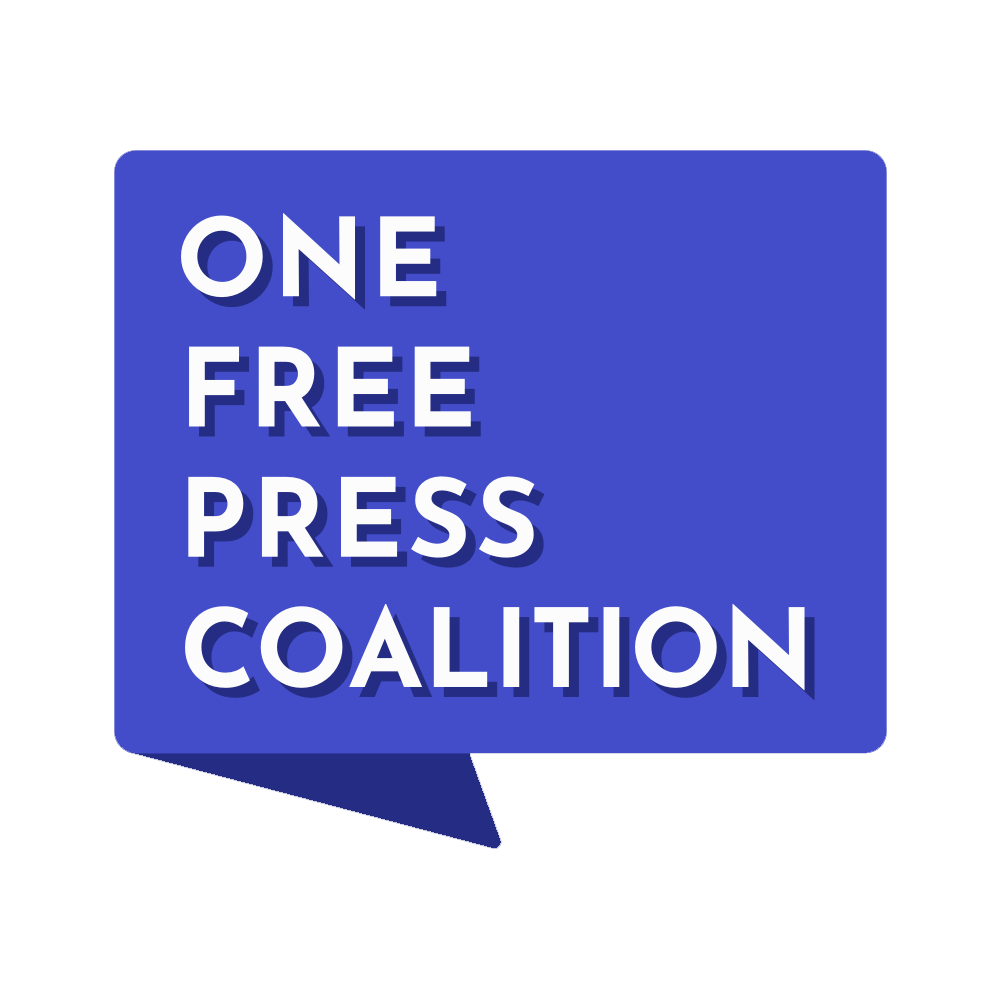On June 1, 2020 the Coalition launched the 16th monthly "10 Most Urgent" list (ranked in order of urgency), calling attention to the most pressing cases of journalists under attack for pursuing the truth.
1. Abdulkhaleq Amran, Akram al-Waleedi, Hareth Hameed and Tawfiq al-Mansouri (Yemen)
Yemeni journalists held five years and sentenced to death. After death sentencing in April, June 9 will mark 5 years in detention for Yemeni journalists Abdulkhaleq Amran, Akram al-Waleedi, Hareth Hameed and Tawfiq al-Mansouri. The Ansar Allah group, known as the Houthis, charged the four with spreading false news “in support of the crimes of Saudi aggression and its allies against the Republic of Yemen.” Their lawyer, who plans to appeal, has been allowed limited courtroom access. More than 150 organizations have called for the decision to be overturned.
2. Azimjon Askarov (Kyrgyzstan)
Life sentence upheld in case of journalist jailed 10 years in worsening health. Last month a Kyrgyz court heard the final appeal, and upheld the life sentence, in the case of award-winning journalist Azimjon Askarov. June 15 marks 10 years since the ethnic Uzbek was arrested on trumped-up charges that included incitement to ethnic hatred and complicity in the murder of a police officer. His wife, Khadicha Askarova, has written a letter to Kyrgyzstan’s president pleading for his release as his health deteriorates with limited access to medication.
Ibraimo Abu Mbaruco (Credit Juma Abu Mbaruco)
3. Ibraimo Abú Mbaruco (Mozambique)
Reporter missing for nearly two months. Ibraimo Abú Mbaruco, a reporter and news presenter for Palma Community Radio broadcaster, has not been heard from since April 7, when he left work in the northern Cabo Delgado province and texted a colleague saying he was “surrounded by soldiers.” Civil society organizations have sent a letter to Mozambican President Filipe Jacinto Nyusi expressing concern about the deteriorating human rights situation exemplified by Mbaruco’s apparent military-enforced disappearance.
4. Nariman Memedeminov (Russia)
Journalist punished for writing about human rights violations against indigenous Crimeans. In mid-May a Russian appeals court upheld charges against Nariman Memedeminov, a Ukrainian freelance journalist who was sentenced last October to 2.5 years in prison. He had already served 1.5 years in pre-trial detention between his arrest in Russian-controlled Crimea and conviction for making “public calls to terrorism” in his reporting. His defense team plans to file a complaint to the European Court of Human Rights.
Wawa Jackson Nfor (Credit Derrick Bakah)
Writer imprisoned two years for writing on women’s rights. June 6 marks two years since Saudi blogger and postgraduate student Nouf Abdulaziz was arrested at her home, among a broad wave of activists silenced for their work relating to gender equality. Trial is pending for the public prosecutor to present several charges including “contact with foreign entities. Abdulaziz is being held in Riyadh’s al-Hair Prison, one of 26 journalists imprisoned in Saudi Arabia according to CPJ’s 2019 prison census, tying it with Egypt for the third-leading jailer of journalists.
6. Wawa Jackson Nfor (Cameroon)
Court date set for journalist held in pretrial detention two years. Journalist Wawa Jackson Nfor faces arraignment before a new judge on June 8, after more than two years held in pretrial detention on accusations of publishing secessionist information. A guilty verdict could carry a maximum penalty of life imprisonment. National gendarmes in Nkambe, a city in Cameroon’s English-speaking Northwest region, arrested Nfor without a warrant in May 2018.
Arphine Helisoa (Credit Nadia Raonimanalina)
7. Arphine Helisoa (Madagascar)
Trial threatens imprisonment and revocation of journalist’s rights. The director of Madagascar’s Ny Valosoa (The Reward) newspaper, Arphine Helisoa, faces trial for allegations of “incitement” and spreading “false news” regarding President Andry Rajoelina. Though she has been released since April 4 arrest, a conviction could carry up to five years in prison and possible prohibition of additional rights, including voting, for up to 10 years. Helisoa was previously detained in 2019 for “defamation” for a report alleging improper use of military equipment.
Masrat Zahra (Courtesy of Masrat Zahra)
8. Masrat Zahra (India)
Police investigate, harass and intimidate photojournalist for images posted to Facebook. Masrat Zahra, a freelance photojournalist in Kashmir, could face a fine or up to seven years in prison under a law permitting India’s counterterrorism police to detain suspects for extended periods without a formal charge. Police summoned her for questioning in April, opening an investigation of photographs posted on social media “glorifying anti-national activities” without specifying which images were deemed “an offense against the state.”
9. Jamal Khashoggi (Saudi Arabia)
Calls persist for investigation into journalist’s high-profile, brazen murder. Democrats in the U.S. House of Representatives are reportedly working on new legislation to push the Trump administration to release secret findings on the full extent of Saudi Arabia’s role in Jamal Khashoggi’s death. In the time since the Washington Post columnist was killed inside Istanbul’s Saudi consulate in 2018, there has been no independent criminal investigation, and the U.S. executive branch ignored a mandated release of an intelligence report due January, 19 2020.
10. Óscar Parra and the Rutas del Conflicto team (Colombia)
Government obtained personal information from dozens of national and international journalists. Media outlet Rutas del Conflicto, which is dedicated to documenting Colombia’s armed conflict, and its director, Óscar Parra, have been targeted by military intelligence officials in an extensive monitoring operation. The information collected from more than 130 individuals, including 30-plus journalists included personal information such as professional contacts, family and friends, according to a May 1 report from Colombian newsweekly Semana, titled “The Secret Files” (Las carpetas secretas).
